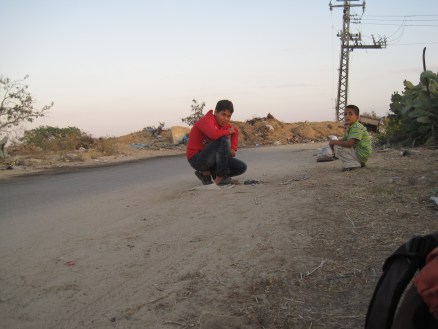Month: October 2011
-
Israeli soldiers “are the law:” The detainment of children
by Emma and Becka 29 October 2011 | International Solidarity Movement, West Bank On Thursday October 29, in Huwarra, around 3:00PM, soldiers detained busses and services for no apparent reasons. The busses that were stopped were filled with children going home from school. The passengers passports were taken from them, without any explanation, and held for…
-
The Israeli Army shot at me and 3 Palestinian kids in Gaza today
Radhika S. 28 October 2011 | Notes from Behind the Blockade After a lovely day of drinking excessive amounts of tea with a few families in South Gaza (Faraheen and Khuza’a, to be exact), an Italian colleague, Silvia, who used to live in Khuza’a, suggested walking down the road towards the local school. It was…
-
Israeli army shoots at children and two ISM activists
Silvia Todeschini 28 October 2011 | International Solidarity Movement, Gaza Witnesses in Gaza today reported an escalation of Israeli aggression in the Khuza’a – Abasan, governate of Khan Younis, Gaza Strip. The Israeli army also shot at two ISM activists and local children. Israeli tanks entered Gaza this morning, from approximately 7.30 to 8.30, moving…

